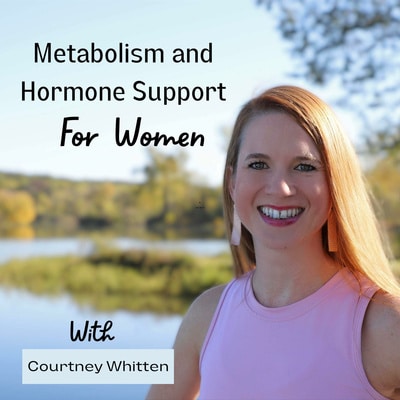Summary of Changing Your Relationship with Food by Metabolism and Hormone Support for Women:
The approach of doing more when it comes to diet and exercise can backfire, causing burnout and frustration. Over-exercising can cause undereating or overeating, both leading to problems with losing lean muscle mass, declining exercise performance, recovery, and hitting a plateau for weight and fat loss. Eating a low calorie diet for long periods of time can cause the metabolism to adapt, leading to weight and body fat gain. Furthermore, extreme diet and exercise can reduce active thyroid hormone, decrease sex hormone production, and raise adrenal stress hormone levels, leading to hormonal imbalances. Overdoing it at the gym can also increase the risk of injury. Coaching programs tailored to women over the age of 35 or with hormone imbalances, such as low thyroid, are available.
*****
Why “More is Better” Isn’t Always the Answer for Diet and Exercise
When it comes to diet and exercise, many people believe that the more they do, the better their results will be. However, this approach can often be counterproductive, causing burnout and frustration. Here are four problems with the “more is better” approach to fitness and health:
Problem #1: Doing more isn’t sustainable long-term.
Whether it’s through excessive exercise or strict dieting, overdoing it can quickly drain your energy and motivation. Neglecting other areas of your life can also lead to feelings of isolation and disconnection from loved ones. Instead of aiming for perfection, focus on creating a balanced approach that you can realistically sustain over the long term.
Problem #2: Caloric intake and output can start to work against you.
Many people fall into the trap of thinking that if they exercise more, they can eat more. However, this can lead to a cycle of overeating and undereating that negatively impacts performance and recovery. Instead of obsessing over calories, focus on nourishing your body with nutrient-dense foods that support your goals.
Problem #3: Metabolic adaptation can cause weight gain.
When we eat too few calories and exercise too much, our body enters into starvation mode, slowing down our metabolism to conserve energy. This can lead to weight gain and body fat accumulation, as well as hormonal imbalances that impact our mood, energy, and cravings. Instead of starving yourself, focus on properly fueling your workouts with whole, healthy foods.
Problem #4: Increased risk of injury.
Overdoing it at the gym can make us more susceptible to injuries, chronic pain, and fatigue. Pushing yourself too hard can also lead to burnout and decreased motivation. Instead of forcing yourself to continuously exercise at a high intensity, try incorporating active recovery days, stretching, and time for rest and relaxation.
If you’re looking to break the cycle of over-exercising and strict dieting, I offer coaching programs that focus on sustainable lifestyle changes. Whether you’re struggling with hormonal imbalances, weight loss resistance, or changes in body composition, I can help you create a plan that supports your unique needs and goals.
To learn more about my coaching programs, send me an email at cfitnessonlinetraining@gmail.com to set up your free discovery session today. Additionally, you can join my closed Facebook group, Metabolism and Hormone Support for Women, to connect with other women who are focused on improving their health and wellness.


Comments are closed